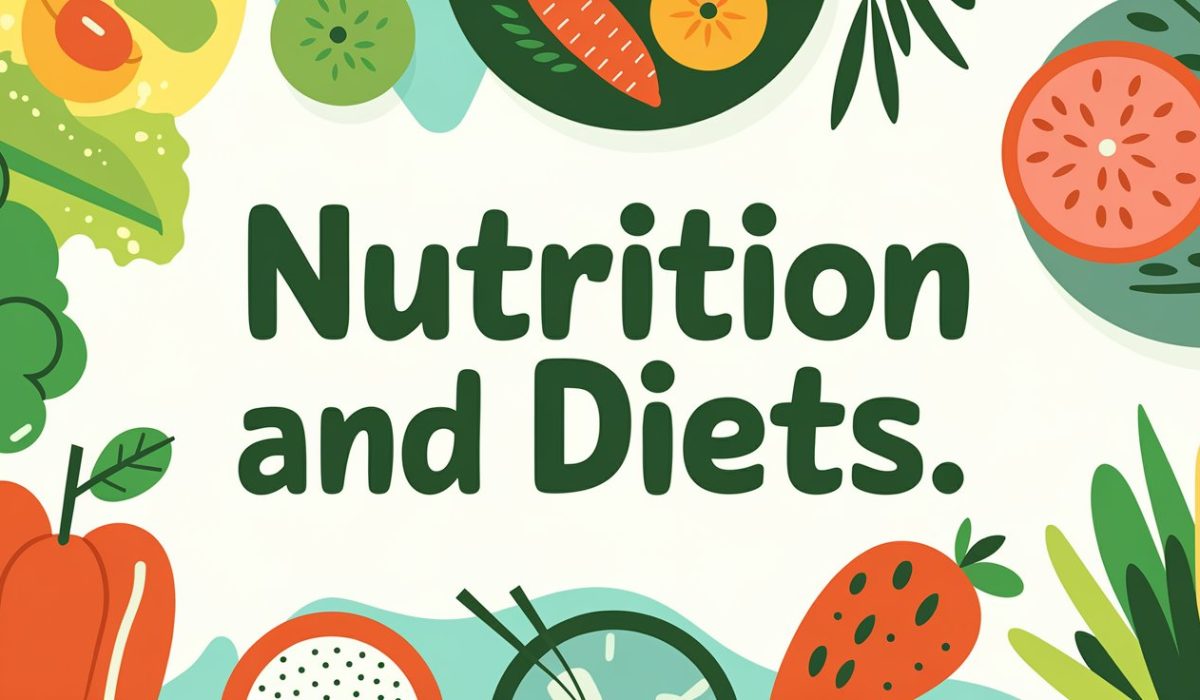Nutrition and Diets: A Beginner’s Guide to Healthy Eating
Nutrition plays a crucial role in maintaining a healthy lifestyle and achieving overall wellness. Understanding the basics of nutrition and diets can help you make informed choices about what you eat and how it affects your health. This guide provides essential information about nutrition, dietary choices, and practical tips for healthier eating.
1. Understanding Nutrition
Nutrition is the study of how food affects our health and well-being. The food we eat provides the energy and nutrients our bodies need to function effectively. Key components of nutrition include:
- Macronutrients: These are nutrients that provide energy and are needed in larger amounts:
- Carbohydrates: The body’s primary energy source. Found in grains, fruits, and vegetables.
- Proteins: Essential for building and repairing tissues. Sources include meat, fish, eggs, legumes, and dairy products.
- Fats: Important for hormone production and cell function. Healthy sources include nuts, seeds, avocados, and olive oil.
- Micronutrients: These are vitamins and minerals needed in smaller amounts but are vital for various bodily functions:
- Vitamins: Organic compounds that support processes such as immune function and energy production (e.g., vitamin C, vitamin D).
- Minerals: Inorganic elements that play roles in bone health, fluid balance, and muscle function (e.g., calcium, iron).
- Water: Essential for life, hydration, and overall health. Aim to drink enough water throughout the day.
2. Creating a Balanced Diet
A balanced diet includes a variety of foods from all food groups to ensure you get all necessary nutrients. Here’s a simple guide to creating a balanced plate:
- Fruits and Vegetables: Fill half your plate with a variety of colorful fruits and vegetables. Aim for at least 5 servings per day.
- Whole Grains: Choose whole grains like brown rice, quinoa, whole wheat bread, and oats instead of refined grains.
- Protein: Include lean proteins such as chicken, fish, tofu, beans, and legumes.
- Healthy Fats: Incorporate sources of healthy fats in moderation, such as avocados, nuts, and olive oil.
3. Popular Diets Explained
There are many dietary approaches to consider based on individual goals and lifestyles. Here are a few popular diets:
- Mediterranean Diet: Focuses on whole foods, healthy fats (olive oil), lean proteins (fish, poultry), fruits, vegetables, nuts, and whole grains. It’s known for heart health benefits.
- Plant-Based Diet: Emphasizes whole, minimally processed plant foods, including fruits, vegetables, grains, legumes, nuts, and seeds. It limits or excludes animal products.
- Paleo Diet: Encourages eating foods similar to what our ancestors consumed. It includes lean meats, fish, fruits, vegetables, nuts, and seeds while avoiding processed foods, grains, and dairy.
- Ketogenic Diet: A high-fat, low-carbohydrate diet designed to put the body in a state of ketosis, where it burns fat for energy. It emphasizes fats, moderate proteins, and minimal carbs.
4. Practical Tips for Healthy Eating
Implementing healthy eating habits can be simple and effective. Here are some practical tips:
- Plan Your Meals: Take time to plan meals and snacks for the week to avoid unhealthy choices and reduce food waste.
- Read Nutrition Labels: Pay attention to serving sizes, calories, and nutrient content when shopping for groceries.
- Practice Portion Control: Be mindful of portion sizes to prevent overeating. Use smaller plates and bowls to help manage portions.
- Stay Hydrated: Drink plenty of water throughout the day. Limit sugary beverages and excessive caffeine.
- Limit Processed Foods: Try to minimize processed and packaged foods high in added sugars, unhealthy fats, and sodium.
5. Listening to Your Body
It’s important to develop a healthy relationship with food. Here are some tips for mindful eating:
- Eat Slowly: Take your time while eating to savor your food and recognize when you’re full.
- Pay Attention to Hunger Cues: Learn to distinguish between physical hunger and emotional eating.
- Indulge Occasionally: Allow yourself to enjoy treats in moderation without guilt.
6. Supplements and Nutrition
While it’s best to obtain nutrients from whole foods, some individuals may benefit from supplements. Consult with a healthcare professional before starting any new supplements, especially if you have specific dietary restrictions or health concerns.
Conclusion
Understanding nutrition and incorporating healthy eating habits can significantly impact your overall health and well-being. By creating a balanced diet, exploring different dietary approaches, and practicing mindful eating, you can make positive changes to your lifestyle. Start your journey toward healthier eating today and enjoy the benefits of good nutrition.
